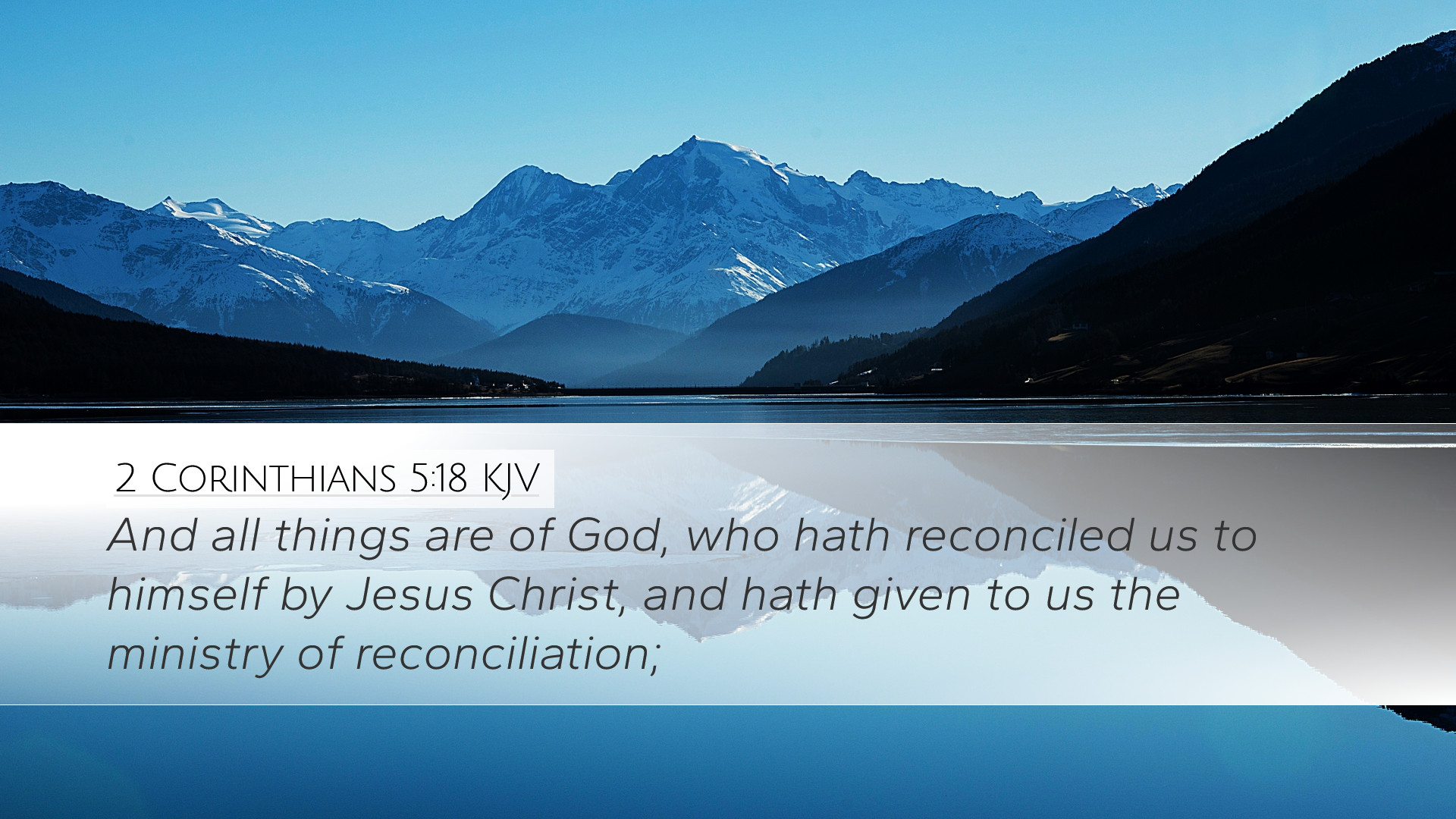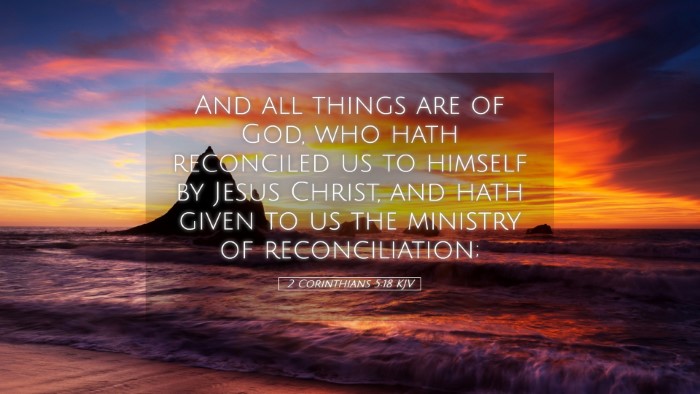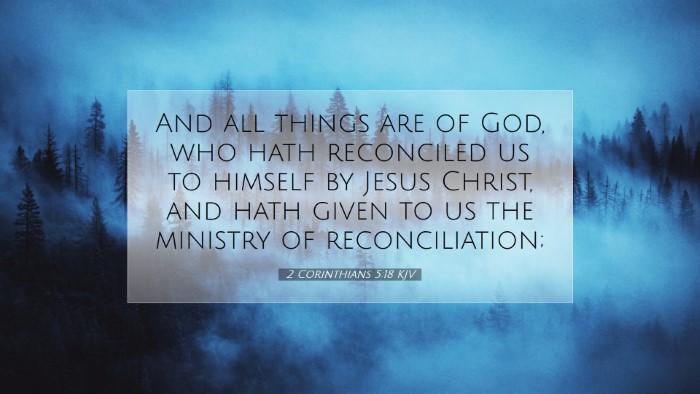Commentary on 2 Corinthians 5:18
The Apostle Paul, in his epistle to the Corinthians, encapsulates a profound truth in 2 Corinthians 5:18:
"And all things are of God, who hath reconciled us to himself by Jesus Christ, and hath given to us the ministry of reconciliation."
This verse serves as a pivotal statement in understanding both the nature of God and the mission of believers.
Divine Initiative in Reconciliation
First and foremost, Paul emphasizes that reconciliation is initiated by God Himself.
Matthew Henry notes that "God is the author of our peace," signifying that the relationship restoration is a divine act.
This underscores the New Testament theme of God’s grace, as indicated by Albert Barnes, who elaborates that we are brought back to harmony with God not through our efforts but through His grace manifested in Christ.
The Role of Jesus Christ
Jesus’ role in this reconciliation is paramount. Adam Clarke elaborates on this necessity:
"It is through Jesus that the enmity between man and God is removed."
His sacrificial death not only serves as a pivotal moment in redemptive history but also establishes the foundation through which humanity can access reconciliation with God.
This biblical principle reminds believers that Jesus’ act was both a historical event and an ongoing truth that affects their daily lives.
The Ministry of Reconciliation
The designation of believers as ministers of reconciliation is a significant theme in this verse.
Matthew Henry expresses that believers are entrusted with the "office of reconciliation," highlighting the responsibility they bear in sharing the gospel.
Albert Barnes elaborates that this ministry is not limited to a select few; instead, every believer is called to facilitate reconciliation with God in their communities.
Implications for the Church
The church is, therefore, positioned as a beacon of reconciliation in a world marked by division and hostility.
Adam Clarke emphasizes that the church should actively pursue this ministry, working to bridge gaps not only between God and humanity but also within human relationships.
This relational aspect is critical; as believers embody and proclaim the reconciling work of Christ, they offer hope in a fractured world.
Applications for Believers
It is essential for believers to embrace their identity as reconciled individuals.
Paul’s assertion encourages each Christian to reflect on the transformative nature of reconciliation that has occurred in their own lives.
-
Gratitude:
Acknowledge the grace of God in one’s own life, fostering an attitude of thankfulness for His reconciling work through Christ.
-
Embodiment of Reconciliation:
Strive to live out reconciliation through forgiveness, love, and peace within interpersonal relationships.
-
Active Participation:
Engage actively in the ministry of reconciliation, sharing the message of the gospel with those around you, understanding that each believer plays a vital role.
The Broader Context of 2 Corinthians
Understanding 2 Corinthians 5:18 requires considering its broader context.
Paul addresses believers facing various challenges, including divisions and moral lapses.
This verse stands as a reminder of the reconciliation not only between God and humanity but also among believers.
Addressing the church's unity and moral integrity is essential as spiritual reconciliation can often lead to a social and communal harmony within the church.
Conclusion
In 2 Corinthians 5:18, Paul encapsulates the central theme of reconciliation that permeates Scripture.
Drawing insights from the commentaries of Matthew Henry, Albert Barnes, and Adam Clarke illustrates a rich theological foundation that is meaningful for pastors, students, theologians, and scholars alike.
The call to acknowledge God’s divine initiative in reconciliation, the central role of Jesus Christ, and the believers’ active participation in this ministry remains a vital element of the Christian faith.
As believers, it is through embracing and sharing this message of reconciliation that the church can reflect God's character and purpose in an increasingly divided world.


